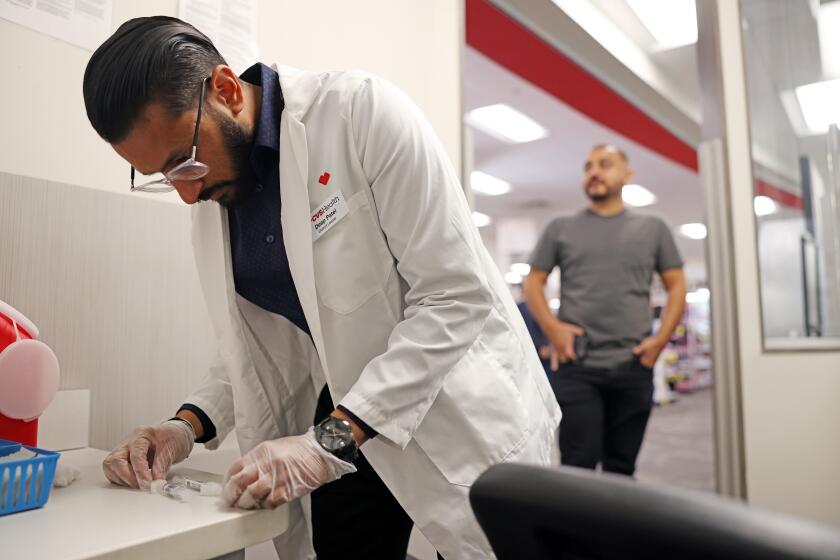Prescribing ADHD drugs for healthy kids? Just say no, group urges
Prescribing psychotropic medications to normal, healthy kids who want to boost their academic performance is “not justifiable” because it contravenes a physician’s responsibility to promote a child’s “authentic” development and to protect him or her against coercion by parents or peers, a group of neurologists and bioethicists has asserted.
When older adolescents who are closer to the age of autonomy (or their parents) ask for such medications, arguments against the practice are weaker, the group concluded. But it’s still “inadvisable,” they wrote.
Those arguments are contained in a new finding published in the journal Neurology on Wednesday afternoon.
They come against rising concern about the misuse and diversion of stimulant medications prescribed to people with attention deficit and hyperactivity disorder, or ADHD, often for purposes that have more to do with performance enhancement than recreation. In recent years, the proportion of children diagnosed with ADHD and prescribed stimulant or other medication for the condition has risen steeply. So too has evidence of the medication’s use by children and adolescents looking for an edge in test-taking.
Among 12th-graders, 3.4% acknowledged having used ADHD drugs in the last year for purposes other than those for which they are prescribed, according to a yearly federal survey of youth drug use. In the same 2008 survey, 2.9% of 10th-grade students and 1.6% of eighth-graders acknowledged having taken ADHD drugs for “nonmedical” purposes.
The neuro-ethicists wrote that widening use of ADHD medications and growing awareness and acceptance of the ADHD diagnosis have confronted physicians with increasing requests from parents and children to prescribe the medications to children who do not meet the clinical standards for an ADHD diagnosis. Some may come from parents of children who are developing normally but falling short of high expectations for grades and academic performance.
In such cases, physicians not only have an “essential fiduciary responsibility” to protect the child, but have a social obligation as well to prevent the misuse of a societal resource -- medications -- in ways that may give some children an unfair advantage over others, the neurologists wrote. When asked for such medications by parents of children who do not need them, a physician should take the opportunity to explain that there is no evidence that such drugs benefit children who do not need them, and explore with parents their goals and expectations for the child.
A physician should also counsel parents that, for a child falling short of expectations, there are other, less ethically questionable ways to boost performance, including adequate sleep, exercise and nutrition, tutoring, meditation and biofeedback. Parents should also be encouraged to consider the potential effects of neuro-enhancing medications on their child’s “developing individual authenticity during childhood and adolescence.”
The neuro-ethicists stopped short of asserting that prescribing such medications to children for neuro-enhancement actually endangers their health. They noted that, though medications used for ADHD -- typically stimulants -- can raise blood pressure and heart rate, the consequences of such physiological changes in youngsters can be difficult to detect. Since heart attacks and strokes are extremely rare in such populations, detecting an increase in such events that might be attributed to stimulant use is tricky, they noted. But “ongoing attention is needed to determine the long-term effects of neuro-enhancement medications on the developing brain.”
At the same time, the authors of the Neurology article do not slam the door on the possibility that in some cases, neuro-enhancement might be ethically justified. They challenged physician leaders to continue to ponder “possible exceptions for accepted neuro-enhancement under special circumstances.”




